Voting underway in Kenya: East Africa braces itself as fierce battle between Raila and Ruto reaches climax
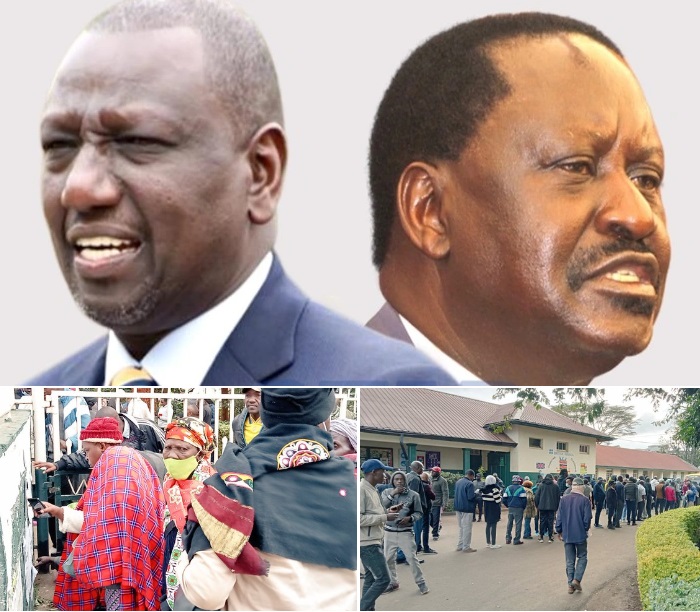
NAIROBI – It’s D-Day in Kenya: after two years of campaigning, planning and plotting, voting is underway. where an opposition leader backed by the outgoing premier faces the deputy president who styles himself as the outsider and a “hustler”.
Polls across the country opened at 6am local time this morning, with more than 22m registered voters able to endorse their favourite candidates in 46,232 polling stations across Africa’s third largest economy.
The election is considered close and East Africa’s biggest economic hub could see a presidential run-off for the first time.
Economic issues such as widespread corruption could be of greater importance than the ethnic tensions that have marked past votes with sometimes deadly results.
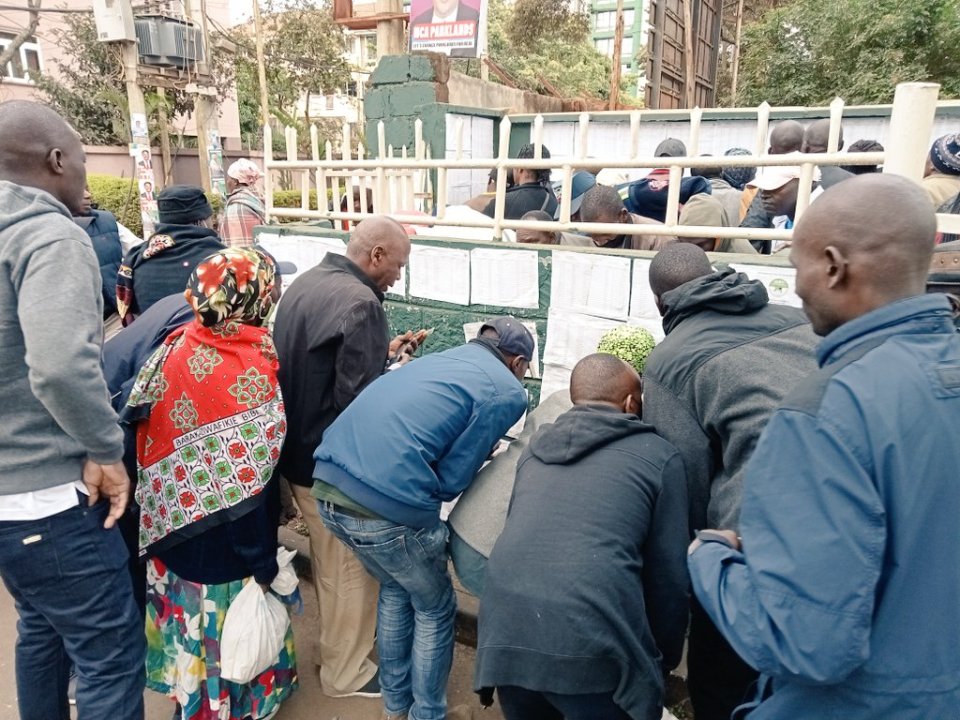
The top job is up for grabs today, which is the climax of a year-long battle between political veteran Raila Odinga and the current deputy president William Ruto, even though the latter fell out with outgoing president Uhuru Kenyatta several years ago. He has effectively been operating outside government ever since.
In addition, hundreds of other public offices are being contested, including the governorship of Nairobi, local councils, all parliament seats and dozens of local and regional positions across the entire nation.
Kenya is a standout with its relatively democratic system in a region where some leaders are notorious for clinging to power for decades.
Its stability is crucial for foreign investors, the most humble of street vendors and troubled neighbours like Ethiopia and Somalia.
Hundreds of voters lined up hours ahead of polls opening in some locations, often after being summoned by volunteers’ early-morning whistles.
Voting started late in some areas as materials or polling workers were delayed.
“In moments like this is when the mighty and the powerful come to the realisation that it is the simple and the ordinary that eventually make the choice,” Mr Ruto told journalists after becoming one of the first voters. “I look forward to our victorious day.”
He urged Kenyans to be peaceful and respect others’ choices.
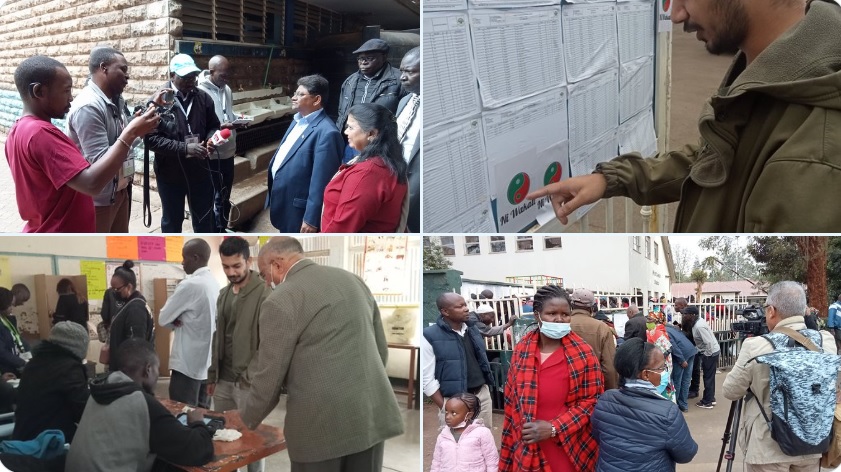
“I have confidence that the people of Kenya are going to speak loudly in favour of democratic change,” Mr Odinga told journalists on his way to vote.
Outgoing President Uhuru Kenyatta, the son of Kenya’s first president, cut across the usual ethnic lines and angered Mr Ruto by backing Mr Odinga after their bitter 2017 election contest.
Thousands of businesses have temporarily shut down, primarily to monitor whether the days immediately after today’s election will bring violence, rioting and looting.
Most offices, restaurants, bars, some larger supermarkets and most malls are closed today, which is traditionally a public holiday.
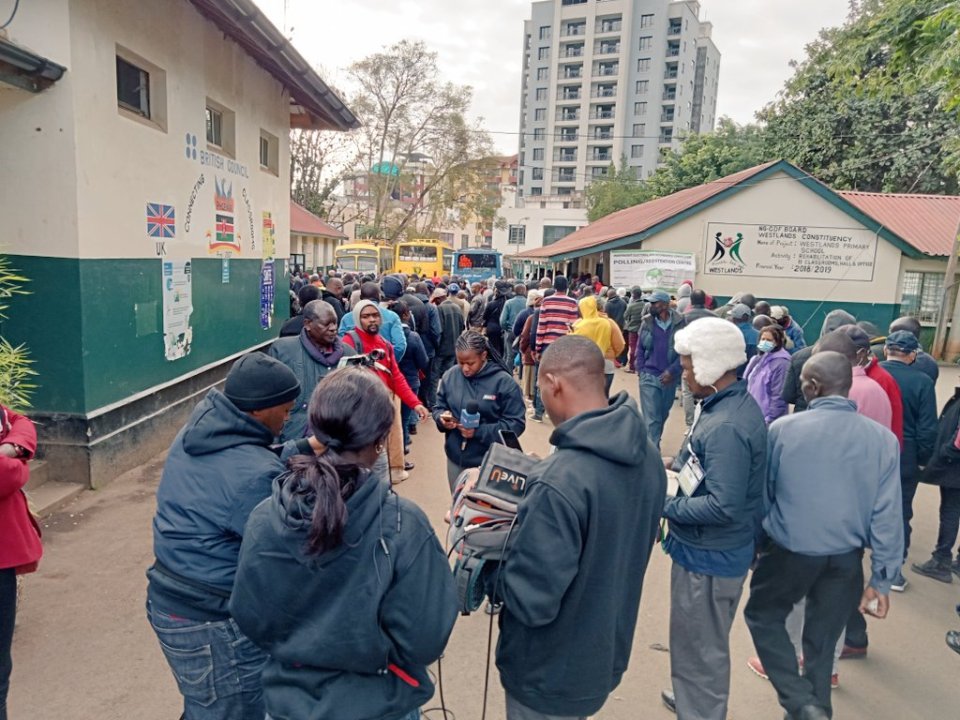
Nervous Kenyans wait and see
In an election campaign that had turned increasingly ugly, with accusations of corruption, land grabbing and power abuse flying left, right and centre, Kenyans are nervously awaiting what today’s election, and particularly its aftermath, will bring.
Western embassies are on high alert and most have sent pre-election warnings to their citizens, ranging from warnings to leave the country if you can to have your ‘grab and go bag’ ready.
People are urged to stay close to home and many have stocked up on food, water, rice and pasta, if possible. Power outages and WiFi disruption is also expected tomorrow and later this week.
A government official in Nairobi, who wishes to remain anonymous, told City A.M. yesterday that authorities are preparing for some election violence: “Yes, we have indications things may turn ugly in some places. There is a lot of activity on social media at the moment.”
Odinga, 77, has made history by choosing running mate Martha Karua, a former justice minister and the first woman to be a leading contender for the deputy presidency.
“Make your voice heard,” she said after voting early in a knitted cap, a sign of the unusually cold weather in parts of the country.
Rising food and fuel prices, huge government debt, high unemployment and corruption mean economic issues are at the centre of an election in which unregulated campaign spending highlighted the country’s inequality.
Meanwhile, election observers from the European Union have been spotted in capital Nairobi.
A small army of EU representatives is present today at polling stations, primarily in Nairobi, Mombasa, Nakuru and a number of other cities across the country.
Long queues
“We need mature people to lead, not someone who abuses people. Someone who respects elders,” said 55-year-old teacher Rosemary Mulima, who arrived with friends at a polling station on the outskirts of Nairobi to find an estimated 500 people in the queuel before dawn.
She said she had “very high” hopes for Mr Odinga on his fifth try.
Others predicted a lower turnout than the 80% five years ago and blamed voter apathy. The electoral commission signed up less than half of the new voters it had hoped for – just 2.5 million.
“The problems from 2017, the economy, the day to day life, are still here,” said 38-year-old shopkeeper Adrian Kibera, who was not sure he would bother to vote. “We don’t have good choices,” he said, calling Mr Odinga too old and Mr Ruto too inexperienced.
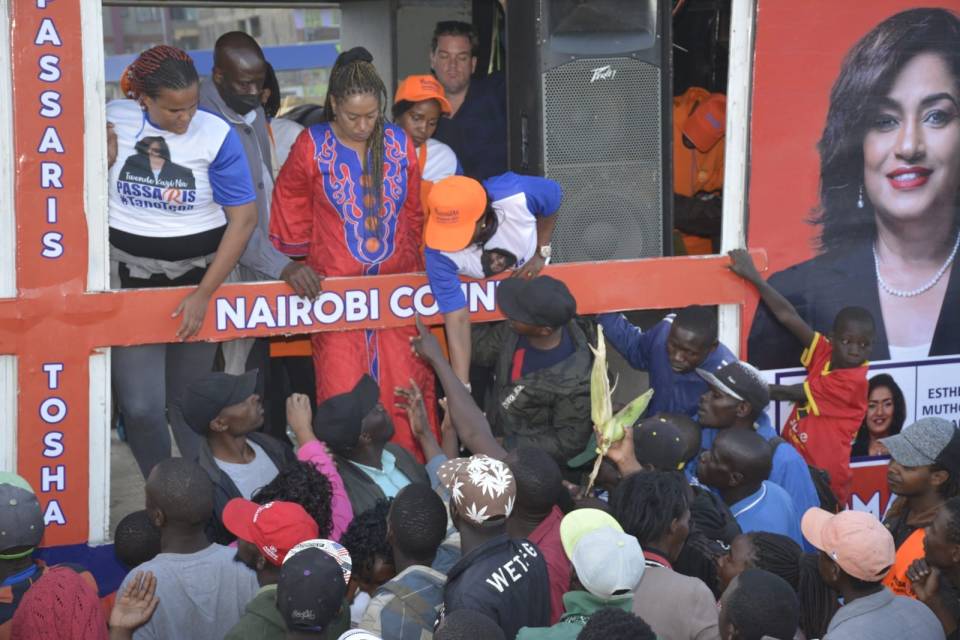
2007-2008 election violence
The main reason many Kenyans are nervous is because millions have not forgotten the tense and bloody election in 2007, when president Mwai Kibaki’s re-election put a dent in his reputation as his victory was disputed by his opponent, Raila Odinga, who is the most likely candidate to become the nation’s next president later this month.
At the time, Odinga asserted that the election result had been rigged and that he had really won the poll. Hundreds of people were killed in weeks of ethnic violence that followed.
Amid the stalemate, Kenya exploded into fighting along tribal lines that forced more than 600,000 people from their homes. The violence shattered Kenya’s standing as a beacon of stability in East Africa.
The international community led by former UN secretary-general Kofi Annan eventually brokered a fragile power-sharing deal between Kibaki and Odinga, who settled for a new role as Kenya’s prime minister.
In the wake of the violence, Kibaki oversaw a new constitution for Kenya that was aimed at decentralising powers and reducing persistent ethnic tensions that continue to flare up during electoral seasons.
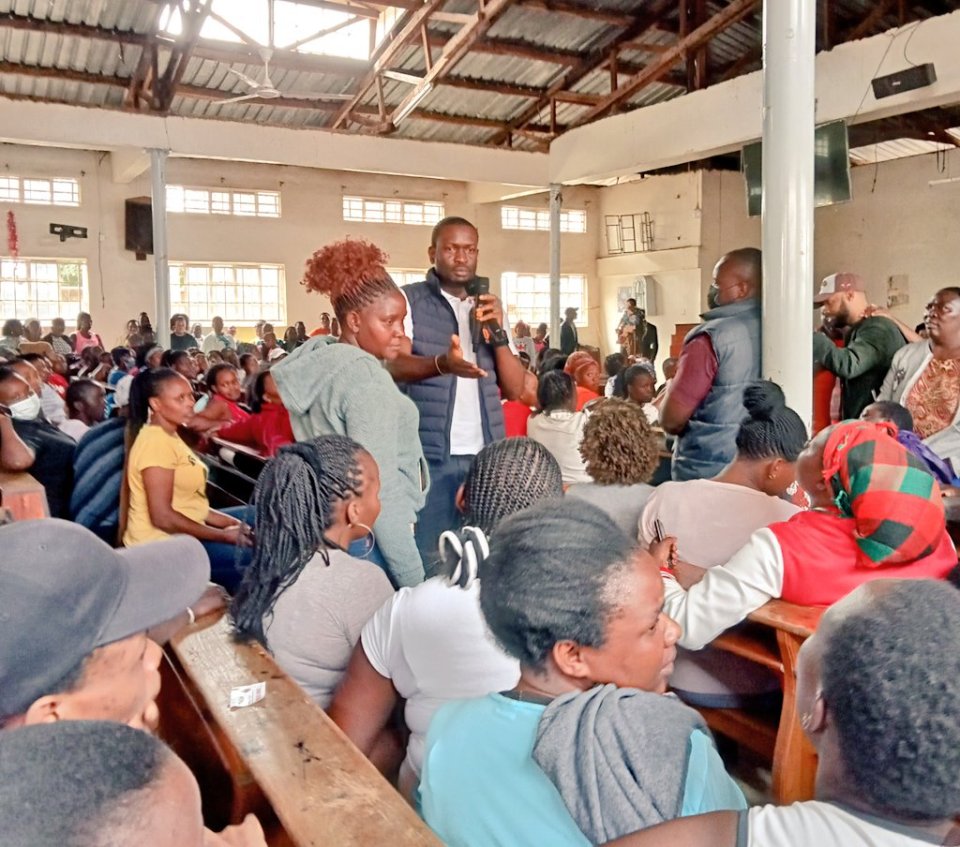
Following the bloody elections, four Kenyans faced charges of crimes against humanity at the International Criminal Court in the Hague, Netherlands, in relation to the 2007-2008 violence.
Two of the four suspects were Uhuru Kenyatta, the current president, and William Ruto, the high-profile deputy president who hopes to become president next week.
The first results are expected overnight or tomorrow at the earliest.
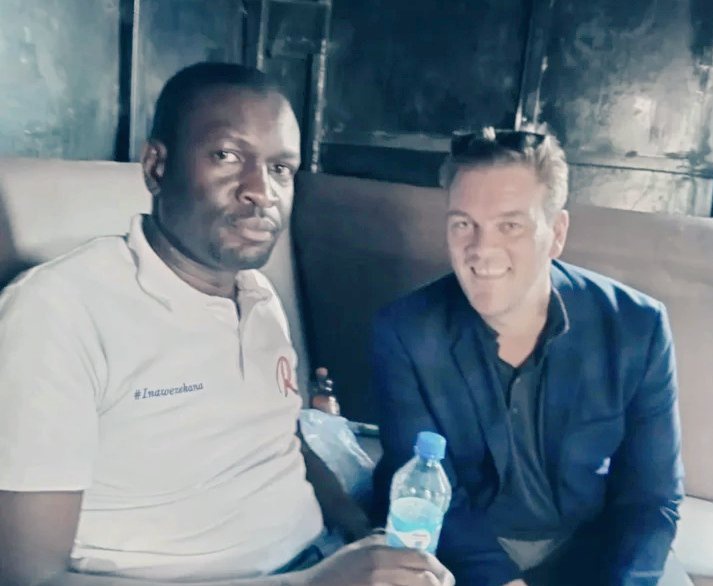
Michiel Willems in Nairobi.
Michiel.Willems@Cityam.com / @Michielwil